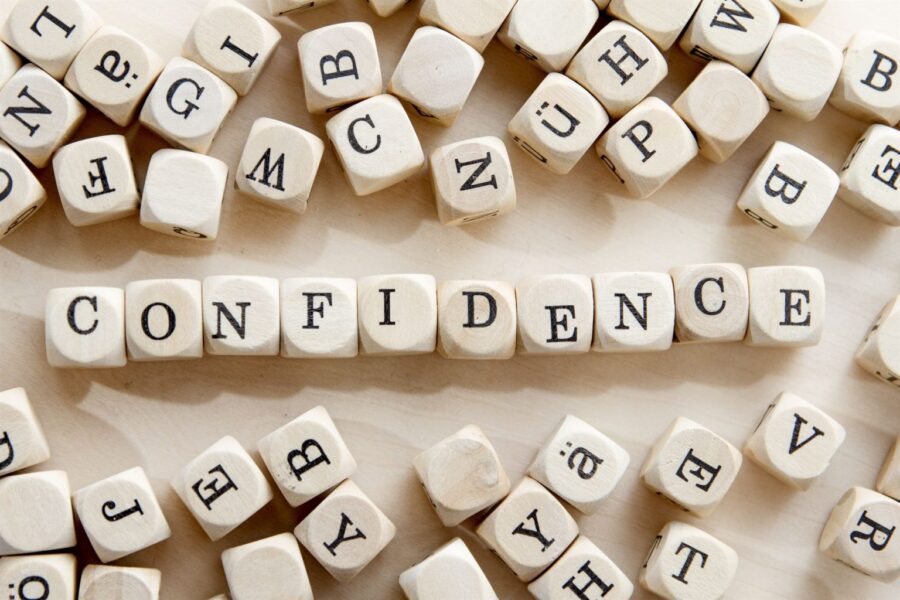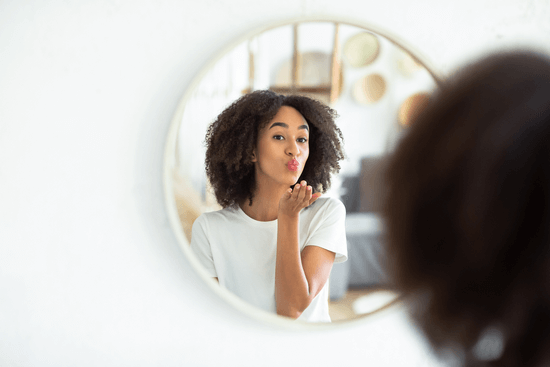Sometimes, in the midst of the everyday chaos, we find ourselves isolated with only our thoughts to deal with. It may seem that everyone around us is confident and sure of everything they are doing. As though they are moving and we aren’t, but chances are, they also feel the same doubts that we feel. Confidence is something that a vast majority of human beings struggle with, personally and professionally. However, the one thing people fail to understand is confidence isn’t something we are naturally born with, we create it as we grow older.
What is Self Confidence?
The American Psychological Association defines self-confidence as “a belief that one is capable of successfully meeting the demands of a task.” VeryWellMind.com defines self-confidence as “referring to a general sense of trust in your ability to control your life, or it might be more situation specific. For example, you might have high self-confidence in a particular area of expertise but feel less confident in other areas.”
Being confident is nothing more than a feeling of certainty that we can achieve anything that we put our minds to. Confidence comes from within, and you can progressively work on building it by believing in yourself and your worth each day of your existence. This, however, doesn’t mean that by being confident, you will automatically not have problems. Everyone has bad days and moments that upset them, and being confident doesn’t mean you will be completely sure of yourself 24/7. When creating confidence for yourself, the key thing to be mindful of is the acknowledgment that you may not know it all, but no matter what happens, you will always be able to handle unique situations and learn from each outcome.

“Optimism is the faith that leads to achievement. Nothing can be done without hope and confidence.”
__ Helen Keller
The Principles of Confidence
Tonny Robbins mentions that in order to learn to build self-confidence, you must be willing to change your state. They define “state” essentially as your mood at any given time of day. Robbins says, “Your mood is influenced by how you feel about yourself at that point in time.” The good news is that you can change your state at any time, no matter what’s going on around you, as long as you know how to do it. Here are the main principles for building confidence:
Body Language
Physiology is key when learning how to be confident. Mastering the body language of confidence can put you on the path to success. The way that you carry yourself communicates how confident you are to the next person. Research suggests that nearly 93% of what you are saying, ironically, has to do with what you aren’t saying, that is, your nonverbal cues and gestures. It is crucial that you understand just how facial expressions, hand gestures, body position, tone of voice, and other nonverbal signals are influencing your relationships, your interactions, and your ability to move up the social and corporate ladder.
Did You Know?
Mehrabian’s research provided the basis for the widely quoted and often oversimplified statistic for the effectiveness of spoken communications. Here is a more precise representation of his findings:
- 7% of the message pertaining to feelings and attitudes is in the words that are spoken.
- 38% of the message pertaining to feelings and attitudes is paralinguistic (the way that the words are said).
- 55% of the message pertaining to feelings and attitudes is in facial expression.

Positivity
Thinking positively can manifest itself in several ways. Change your focus because “Where focus goes, energy flows.” Instead of getting hung up on all the ways something could go wrong, focus on all the ways in which it could go right. Essentially, what you focus on becomes your reality—and that includes what you focus on within your own mind. Replace negative words with positive ones and start seeing the bright side of situations. By changing your focus, both internally and externally, you’re changing your state. And by changing your state, you’ll change your life.
Emotional Control
Tonny Robbins says that humans have the unique and incredible capacity to experience a wide range of emotions. But if you let your emotions dictate your experience of life without pinpointing why you feel a particular way, your emotions will control you. He says that you control the way you feel, including whether or not you feel confident. Confidence is like any other emotion. It is something you feel, and you can train yourself to access it in an instant.
A Growth Mindset
You may have some idea that confidence only stems from prior success—that you can only know how to be confident in yourself after you’ve become wildly successful. This sort of core belief severely limits you. Confidence doesn’t come from your outward achievements; it comes from within. Being confident means that if you do fail, you can pick yourself back up and try again instead of throwing in the towel. Once you start taking actionable steps toward your goal of being confident, your beliefs will gradually start to solidify.
How to Become More Confident

- Practice Self-Love: To master the art of self-confidence, first master the arts of self-awareness and self-love. Determine your values and be proud of them. Embrace your strengths and weaknesses equally.
- Conquer your limits: Without self-love, people unconsciously adopt limiting beliefs about what they are capable of or what type of relationship they deserve. This leads to self-sabotage and reinforcement of these beliefs, and overcoming them is the first step to total confidence.
- Connect Confidence to your goals: The first step is knowing the purpose behind why you want to achieve it. Once you know your purpose, learning how to build confidence becomes a matter of retraining your brain.
- Take Credit for Your Achievements: Confident people may make more money in the workplace because they take credit for their achievements. If you made a contribution that accomplished a goal for the company or led to a positive outcome, it isn’t bragging to point it out to your manager.
- Shift Your Perspective: If you’re feeling discouraged, sometimes all you need to do is reframe your mindset. First, you must change your perspective on failure. See failures as opportunities, not obstacles. Focus on the positive instead of the negative. Embrace all of the gifts of life and live fearlessly.
Caring for yourself is important for building self-confidence. Make sure you are getting what you need to feel good about yourself and your abilities. Remember, what sets a confident woman apart from other women is that she doesn’t let the emotion of jealousy take over. She knows that it’s okay for us all to win and that one day it will be their turn.
Share your views on our social platforms and follow MEFeater on Twitter, Instagram, Facebook, and Pinterest for more updates.









